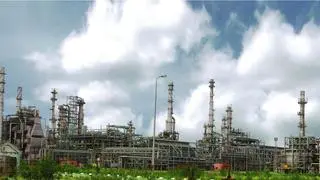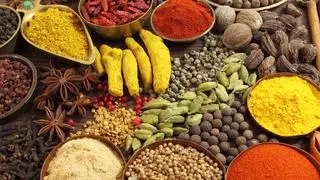Notwithstanding the cut in import duty on steel products, the high iron ore prices and second wave of Covid remain a concern for the domestic steel sector, though demand has remained buoyant. The launch of the vaccination programme is seen as the only comforting factor. Seshagiri Rao, Joint Managing Director, JSW Steel, spoke to BusinessLine on the way forward for the sector. Excerpts:
How do you view the Budget?
It is growth oriented, with a huge allocation for infrastructure. The revenue estimates from taxes are on the optimistic side considering the nominal GDP growth expectation of 14.4 per cent. The Finance Minister has assumed that corporate and personal tax revenue will go up by 23 per cent each to ₹5.47-lakh crore and ₹5.61-lakh crore, respectively. The GST collection is expected to touch ₹6.30-lakh crore. The buoyancy in tax revenue has been assumed without an increase in tax rates.
Has JSW vaccinated its employees?
The government is not allowing the private sector to buy vaccines independently. We are in touch with the vaccine suppliers to book a certain quantity and deliver it when the government permits it. The suppliers want us to pay the money in advance to earmark the quantity.
Will concerns on high steel prices suppress demand?
The concerns are unfounded. When prices hit rock bottom and steel companies were losing their shirt there was no concern raised by anybody. If the price increases are not in line with the global prices, are not in tune with cost increases, then the industry should be blamed. In China, the prices went up by 80 per cent, in the US, by 119 per cent, and in Europe, by 84 per cent. In India, it was up only 51 per cent. Domestic prices are at a discount to the landed cost of imports. NMDC has increased iron ore prices by 135 per cent. If steel prices do not go up what happens to manufacturing in India? The return on capital employed in the steel industry is much lower, at 14-15 per cent, and does not enable us to reinvest.
Some of the Ministers have also blamed steel companies for the high prices...
NMDC is a government company and they (Ministers) can very well impress on them to reduce prices.
Iron ore prices have gone up from ₹1,960 a tonne in June to ₹4,610. Government-owned steel companies SAIL and RINL have also increased prices. In a cycle of one-and-half-years, 50 per cent of the time, the steel sector loses money and the rest of the time it makes money.
On an average, we make ends meet. The steel sector has confirmed to the Commerce Ministry and MSME associations that if any MSME player in India is exporting its products by sourcing steel domestically, we will supply at international prices to them. If somebody is complaining that they are not getting steel at competitive prices, it is not true.
Has iron ore supply improved?
Yes, since November. Logistics constraints within Odisha is a stumbling block for moving iron ore to steel factories. However, the Railways has introduced a new policy to give preference to companies which have sidings on both directions of rake movement. We have our own sidings at Dolvi, Salem and Vijayanagar besides at some of the mines in Odisha. So have been graded at C+ by the Railways and the rake allocation to us is far better.
Have iron ore exports slowed down?
Exports are still robust and that is why we are demanding duty on all grades of iron ore. Currently it is 30 per cent on ore with 58 per cent iron content. About 80 per cent of iron ore exported from India is of low grade as it cannot be used by domestic companies. This in itself is absolutely wrong. All big steel companies have set up beneficiation plants and are using only low grade iron ore.
How come pellets are being exported by private companies when there is a government restriction?
It is a false claim made in a public interest litigation filed by some miners. Any way, the Supreme Court has asked all parties who have exported to file their responses. JSW Steel has not exported any pellets.
A JSW group company with a 49 per cent stake in Brahmani River Pellets has made shipments and received the notice. It is the wrong interpretation of a circular meant to restrict exports by KIOCL (Kudremukh Iron Ore Company), an export-oriented unit.
The circular says if KIOCL does not want to export directly it can be channeled through STC and it is not applicable to everyone. Pellet is a free item, according to exim policy.








Comments
Comments have to be in English, and in full sentences. They cannot be abusive or personal. Please abide by our community guidelines for posting your comments.
We have migrated to a new commenting platform. If you are already a registered user of TheHindu Businessline and logged in, you may continue to engage with our articles. If you do not have an account please register and login to post comments. Users can access their older comments by logging into their accounts on Vuukle.